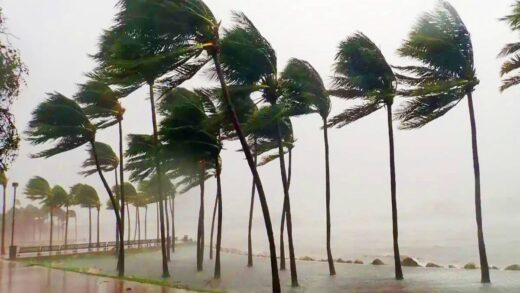The Coloniality of Humanitarian Intervention is a book that scrutinises the practice of humanitarian intervention to explore the extent to which racism and heteronormativity, rooted in colonial understandings of time and space, are enacted through the UK’s responses, failed responses, and non-responses to atrocity crimes. Taking humanitarian intervention as its central focus, the book uses queer international relations scholarship to draw the ongoing coloniality of the Western state into stark relief. In this short article, I outline some of the key arguments presented in the book. I aim to do so in a manner that is accessible for general readers, hoping that the article will prove to be a useful learning resource for students who are first encountering queer thinking about world politics and want to incorporate a queer perspective into their own work, especially where they are working on political violence, genocide, atrocity prevention, or mass violence. I also talk through the book’s key stages in a step-by-step manner, drawing out some of the key themes in my findings, hoping that this will be of use for students who are working on their dissertations. This is only a very small snapshot of the book as a whole. As such, the arguments and engagement with the existing literature are not fully developed, instead acting as an invitation for interested readers to engage with the original text.
Queering Humanitarian Intervention as Colonial Violence
In order to visibilise the eliminationist logics that endure at the heart of Western modernity, the book studies humanitarian intervention, understood as the use of military force to prevent the future occurrence of atrocity crimes. This clearly encapsulates liberal norms of violence, in that violence is authorised on the basis of protecting the fundamental human rights of a civilian population. I follow in the postcolonial tradition (e.g. see Darby, 2009; Pourmokhtari, 2013) of using the phrase humanitarian intervention as opposed to the responsibility to protect (R2P), as the former highlights broader colonial histories of interventionism in the global south. R2P is a much more recent atrocity-prevention framework, comprising two preventative and one responsive pillars. The utility of the third pillar, which can authorise the use of force with UN Security Council approval, has been contested after the perceived failure of the military intervention in Libya in 2011.
Another key epistemological commitment of the book is that it is a queer project, advancing from the position that it is only queer theory that has the capacity to study sexuality, gender, and racism as mutually reinforcing vectors of the colonial project (Vernon, 2022). Queerness, in my understanding, goes beyond the study of LGBTQ+ identities and experiences to incorporate an understanding of how categories, including notions of normality and perversion, shift over time and space (Sedgwick, 1993; Anzaldua, 1987). Applying queer ideas to the study of world politics has grown in popularity in recent years (e.g. see Richter-Montpetit, 2018). It has also undergone somewhat of what I call a ‘homonormative turn’ (Vernon, 2024, 37-42). What I mean by this is that it has moved beyond making the case that heteronormativity (i.e. the sense of social correctness attached to heterosexuality) is relevant to world politics, to focusing on the positioning and relevance of LGBTQ+ subjects in the light of gay, lesbian, and bisexual subjects receiving more rights in Western countries at the beginning of the 21st century. This research has produced fascinating insight into the positioning of LGBTQ+ subjects, and the racialised and/or religious dimensions of this, through homonationalism (Puar, 2007), homocolonialism (Rahman, 2014), homocapitalism (Rao, 2015; 2020), and the sexual standards of civilisation that these regimes inform (Delatolla, 2020).
Where this book makes an intervention is by reorienting our attention back towards heteronormativity as an episteme that continues to undergird the foundations of world politics. I do not try and re-establish a focus on the heterosexual/homosexual binary, but note that homonormative acceptability is that which does not contest neo-liberal capitalism, heteronormativity, or White supremacy. As Andrew Delatolla (2020, 155) notes, homonormativity mirrors heteronormative institutions and understandings. As such, we need to pay attention to the regimes that establish notions of normality and/or perversion. Framing particular rights-based subjects as the primary preserve of queer IR narrows the insights that queer IR can provide into these regimes. This, in turn, obscures the broader global governmentalities of colonial violence that produce insecurity, scarcity, or violence for both LGBTQ+ and non-LGBTQ+ individuals alike. Illustrative of this is the way in which certain figures, such as the Islamic terrorist, are rendered queer and perverse through concurrent racial and sexual discourses, including those around sexual desire and violence, despite them being non-LGBTQ+ figures, with this having direct implications for Muslim populations who are designated as ‘potential terrorists’ globally.
One text which does successfully integrate an analysis of heteronormativity as a racist episteme is Cynthia Weber’s Queer International Relations (2016). In this, Weber argues that ‘the international’ is produced through the figures of the ‘sovereign man’ of the state (2016, 39) (who is White, male, and heterosexual), the ‘normal’ homosexual LGBT subject (2016, 104), and the racialised figures of the ‘unwanted im/migrant’ and the ‘al-Qaeda terrorist’ (2016, 73), both of whom figure as perverse homosexuals. Their perversion, Weber argues, comes from them bypassing normal processes of civilisational and sexual development. The migrant does this by leaving his national homeland and moving to the Global North (2016, 76), whilst the terrorist does this by seeking jihad and prioritising the non-reproductive afterlife (2016, 99), for example.
The Coloniality of Humanitarian Intervention studies similar figures, which are apparent throughout House of Commons debates on humanitarian intervention from 2011-2018. These are the figures of ‘The Brutal Dictator’, ‘The ISIL Terrorist’ and ‘The Civilised British Self’. I do not, however, see these figures as mapping onto the heterosexual/homosexual binary, which are overly restrictive in our understanding of how sexual, gendered, and racialised stereotypes produce dominant understandings of normality and/or perversion. Drawing upon queer (Edelman, 2007; Halberstam, 2005; Love, 2007) and decolonial (Bhabha, 1994; Chakrabarty, 2007; Ogle, 2015) scholars who have interrogated and politicised common-sense notions of time as normalising racism and heteronormativity, I apply these bodies of work to the study of humanitarian intervention for the first time.
The debates I study include instances in which the UK Government successfully securitized an atrocity crime and received Parliamentary approval for military action (Libya, 2011; ISIL in Iraq, 2014; ISIL in Syria, 2015). Also included are cases in which the UK Government failed to secure Parliamentary assent to act (Syria, 2013), retrospectively securitised mass violence (Syria, 2018), and failed to act (Myanmar, 2018), drawing on the queer and feminist concern with absence and failure as significant objects of study. Cumulatively, the book poses the question: ‘In what ways do House of Commons debates on humanitarian intervention (re)produce colonial worldviews?’ In answering, I focus on representations of time and the subject-positions that make this intelligible.
The Brutal Dictator, The ISIL Terrorist, and The British Self
Here I briefly discuss the gendered, sexual and racialised logics that worked together to construct various subject-positions of selfhood and/or otherness throughout the debates in question. This is a top-level and thematic summary of some of the book’s key findings.
The Brutal Dictator: Targeting Families, Forming Evil Alliances
The first of the key cultural figures that the book studies is that of ‘The Brutal Dictator’, which embodies a number of tropes and stereotypes of otherness. A key way in which the meanings associated with ‘The Brutal Dictator’ were established was through graphic descriptions of violence. These descriptions, initially set out by the UK Government and replicated by many MPs, elicited a strong emotional response due to the specific terms such as ‘slaughter’ and ‘butcher’ that were used. Furthermore, it was generally traditional nuclear families that were framed as being under threat, authorising the UK’s deployment of paternalistic violence, enacting colonial saviour narratives (Spivak, 1988).
Through the use of discourses associated with pathology and perversion, those supporting military intervention added further meaning to the subject-position of ‘The Brutal Dictator’ as a queer and monstrous figure who has to be dealt with through military intervention. These discourses generally attributed Gaddafi and Assad with a perverted or damaged psyche, with these arguments sometimes taking on an explicitly racist tone.
Such discourses are similar to those historically used to construct the ‘the homosexual’ as an object of medical and carceral intervention (Foucault, 1976), violent women as aberrations who defy feminine instincts to care (Downing, 2013; Gentry and Sjoberg, 2015), and colonised populations as infantile and incapable of self-governance (Mills and LeFrancois, 2018), legitimising colonial occupation. The racist and heteronormative themes of perverted development here are readily apparent. Given this, it becomes clear that the UK Government’s case for violence rested upon a discursive move which simultaneously racialised ‘The Brutal Dictator’ as infantile and as a threat to actual womenandchildren, authorising the UK’s use of paternal violence.
In addition, arguments akin to George Bush’s axis of evil declaration were made, framing the UK as part of an alliance of democracies who are holding back a tide of nefarious actors including dictators, terrorists, and all those who hate freedom.
The ISIL Terrorist: Islamophobia and the Battle for Survival
The second key cultural figure I identified in the debates in question was that of the ‘ISIL Terrorist’. This figure was constructed as uniquely threatening due to the historic positioning of Islam as diametrically opposed the West in colonial discourses and due to the perceived threat posed to Western societies by terrorism in the post-9/11 era.
In this context, attacks on civilians by White people are often viewed as lone wolf incidents, or as a result of mental illness, whilst attacks perpetrated by racialised people, including Muslims, are invariably seen as terrorist attacks (Ahmed and Matthes, 2017). This is reflective of a deeply entrenched Islamophobia in the UK, which has intensified in recent years (e.g. see Gilks, 2020; Khan, 2021). It is this narrative that has positioned the ‘Islamic Terrorist’ as the folk devil of our times, to borrow from Stan Cohen (1972) and Stuart Hall’s lexicon (1978).
Frequent attempts were also made to apportion responsibility to Muslims and Arab countries for dealing with ISIL. These arguments imply that sharing a similar skin colour, religion, or culture with terrorists means that they have responsibility for suppressing them through us/them othering logics. This is a moral standard that is rarely, if ever, applied to White people, who are assumed to be diverse, with their own individual beliefs and identities, in contrast to Muslims, who are ‘othered’ and assumed to be homogenous due to Islamophobic logics (Skenderovic and Späti, 2019, 136).
Beyond this, appeals to saving Iraqi/Syrian women, children, and sometimes men, appeared frequently in parliamentary discussions of ‘The ISIL Terrorist’. This represents an intertextuality with the construction of ‘The Brutal Dictator’ as using brutal methods of violence against innocent womenandchildren and families. During the 2015 debate on airstrikes against ISIL, parliamentary discussion also turned towards violence against gay people, adding an extra impetus to take action. This reflects homonationalist logics whereby a country’s LGBTQ+ rights record is deployed as a barometer to judge their (in)capacity for sovereignty (Puar, 2007), whilst no meaningful efforts are made to improve the lived experiences of LGBTQ+ people once interventionism has been given the green light.
As with ‘The Brutal Dictator’ who was both infantilised and framed as a threat to womenandchildren (Enloe, 1993, 166), ‘The ISIL Terrorist’ was both queered as perverse and framed as a threat to gay subjects, again speaking to the contradictions in colonial epistemologies.
The British Self: Colonial Masculinity and the (Non)Use of Force
The final cultural figure that I discuss in the book is that of ‘The British Self’. The first key argument that constructed ‘The British Self’ as a masculine subject-position from which legislators were speaking was the deployment of masculinist logics of international politics.
Critiquing the extent to which the dominant logics of international relations (re)produce masculine logics has long been a focus of feminist IR scholars (e.g. Tickner, 1997; Hooper, 2001; Zalewski and Parpart, 1998), who challenge (neo)realist understandings of world politics as reproducing the conditions for conflict (e.g. see Waltz, 1990; Mearsheimer, 1990).
The most obvious way in which MPs deployed masculine logics wasthrough the use of technical military language, with this particularly prevalent in the 2011 Libya debate, the 2013 Syria debate, and the 2018 Syria debate. Reflecting the technospeak that Carol Cohn (1987) identified in her seminal piece ‘Sex and Death in the Rational World of Defense Intellectuals’, this language constructs its own sexy and exciting reality that is divorced from the lived experiences of warfare. Examples of this include the use of technical language to describe military hardware, the use of technocratic verbs such as fired and neutralised, and the listing of objectives such as suppressing air defences and putting a no-fly zone in place. This is testament to one of Cohn’s most insightful but controversial statements; that discussing weapons is fun. In discussing the depersonalised language of nuclear weapons, Cohn notes that the terminology associated with them is racy, sexy, and snappy, giving a sense of control that infuses one’s relation to the material and of mastering the fear associated with nuclear war.
The final, and arguably most crucial, area in which the UK Government and its supporters reproduced neo-colonial logics of masculinity was in the strategic use of humanitarian and diplomatic aims. After the intervention in Libya was highly criticised for failing to provide post-conflict reconstruction, the airstrikes against ISIL in Iraq and Syria, in particular, were presented as an act of care through reference to the broader humanitarian and diplomatic aims that the UK was pursuing. Here, the UK’s use of force was framed as an act of care, akin to tough love that is given to a child, or care that is given to mentally unwell people who are sectioned under the Mental Health Act. These processes of reinstating ‘reasonable behaviour’ through carceral interventions seem to be at play in discourses of humanitarian intervention, which hinge upon the idea of deploying a brief use of force to steer the country in question back on track to being a ‘good international citizen’. Furthermore, diplomatic and humanitarian discourses were used to completely de-securitise the Rohingya Genocide, legitimising the UK Government’s military inaction.
Resisting The Coloniality of Humanitarian Intervention
As the debates in question progressed, MPs deployed a variety of arguments that increasingly closed-down the range of discursive options available to the UK Government in making its case for exceptional liberal violence.
Resisting the construction of ‘The Brutal Dictator’, MPs opposing intervention called attention to the UK’s failures and dishonesty in Iraq and highlighted British arms sales to Saudi Arabia in the Libya debate. Furthermore, in the Syria debate, MPs opposing intervention highlighted that the UK had overstepped its mandate in Libya, meaning the government could not be trusted, with this contributing towards Parliament blocking military action.
In the 2014 and 2015 debates on intervention against ISIL, MPs opposing the government position resisted the construction of ‘The ISIL Terrorist’ as authorising the use of military force. They did so by highlighting the incompatibility of using force with improving conditions on the ground and by emphasising the subjective and politically motivated character of the label ‘terrorist’, repeatedly asking David Cameron to apologise for his unsubstantiated remark that anti-intervention MPs are terrorist sympathisers. Finally, MPs challenged representations of the UK as a benevolent patriarch throughout the debates by highlighting its inconsistent approach to interventionism and its repeated enthusiasm for ill thought-out interventions.
By repeatedly highlighting inconsistencies in the UK Government’s arguments, MPs opposed to intervention have contributed towards reifying an environment in which the UK Government struggles to gain support for interventionism, especially in the context of deadlock in the UN Security Council. Where it does act without Parliamentary approval, this now seems to be a minimal contribution to international coalition airstrikes, as occurred in 2018, when the UK deployed only eight storm shadow missiles as part of a broader US–UK–French operation.
I do want to highlight here that I recognise that studying MPs opposing intervention is elitist, but in this project, I was interested in mapping the discursive terrain of House of Commons debates. In future research, I aim to work directly with some of the communities impacted by the ongoing effects of the colonial civilisation mission, namely trans and migrant communities.
The Universal Path to Democracy
Recognising that the subject-positions, tropes, and meanings discussed within the House of Commons debates reflect a broader worldview that continues to enable certain violences whilst precluding others from occurring, the final chapter situates the subject-positions discussed thus far within a broad temporal framework that I term ‘the path to democracy’.
Within this framework, Britain and the Global Northwest are understood as the telos of civilisation (Rahman, 2014), whilst the Global South lags behind, or in some instances is understood as undevelopable (Weber, 2016, 8). In this sense, ‘The Brutal Dictator’, ‘The ISIL Terrorist’, and ‘The British Self’ are personified representations of a British worldview defined by racial hierarchies, hetero/homonormativity, and the concurrent operation of colonialism and neoliberal governance.
It is by highlighting the worldview that is encapsulated and enacted by discourses of humanitarian intervention that the book’s main contribution lies. In mainstream political discourse, Liberalism is often framed as having replaced colonialism, which is commonly deemed to have fizzled out in the mid-late twentieth century. In this book, I contribute to the existing decolonial scholarship (e.g. see Lowe, 2015; Mbembe, 2003; Mohanty, 2011) that demonstrates how colonialism continues to operate through liberal rights-based language, often rendering it more informal and undetectable. I do so through reference to the case study of humanitarian intervention, placing an emphasis on not only race but sexuality and gender in constructing the colonial worldviews that are appealed to in the construction of a state of exception (Mbembe, 2003, 12) in which liberal violence is permitted.
This is not only applicable to the study of humanitarian intervention, but to broader acts of colonial violence. Indeed, many of the themes explored in this book, including saviour narratives, the designation of groups as terrorists, the infantilisation of racialised populations, and the use of masculinist language clearly relate to the legitimisation of the ongoing genocide in Gaza by political elites. I hope that by mapping some of these themes and unpacking how they are articulated and resisted, that more scholar-activists will feel encouraged and enabled to engage in queer critiques of colonial violence.
Further Reading on E-International Relations
Source link
#Queer #Coloniality #Humanitarian #Intervention


















